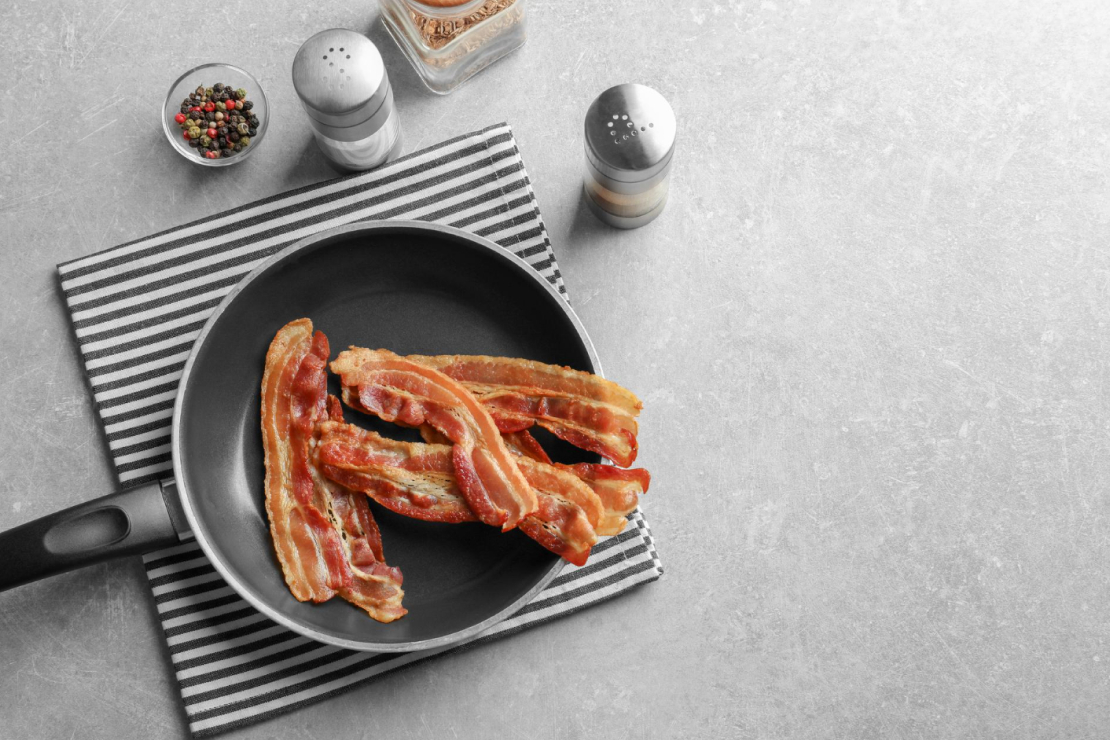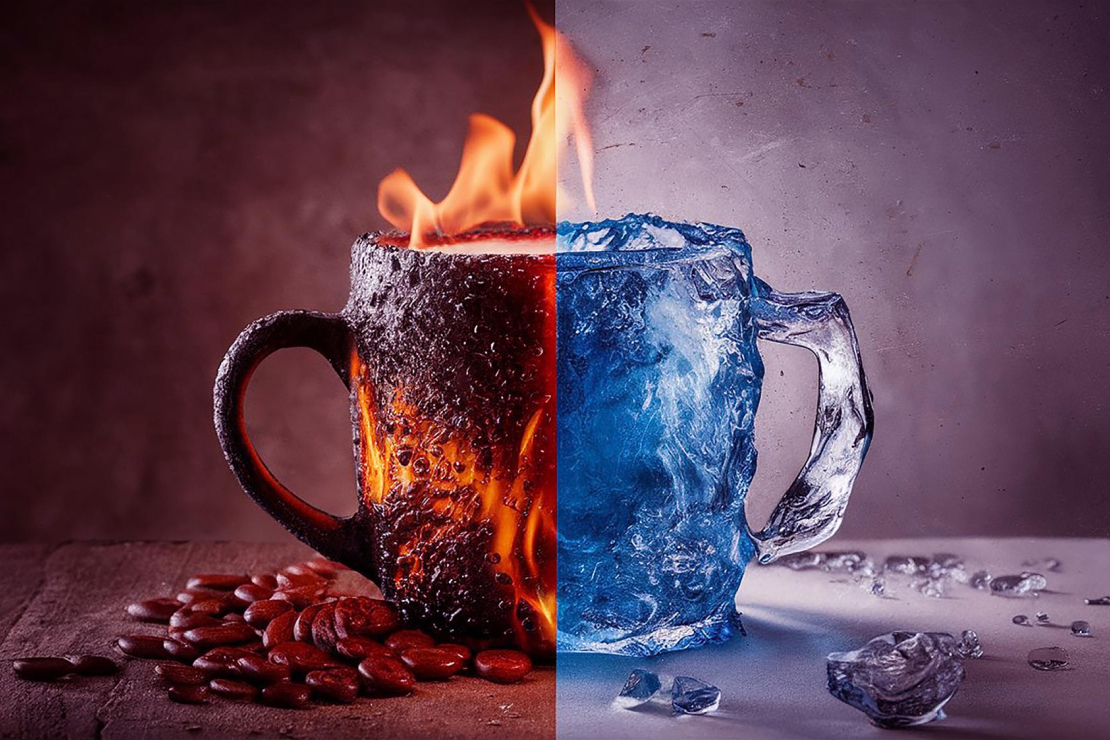Is Bacon Good for Weight Loss?: Bringing Home the Bacon
Discover the truth about bacon in your weight loss journey. Learn how to incorporate this controversial food into a healthy diet plan with science-backed insights.

Table of Content
The Bacon Debate in the Weight Loss World
In the ever-evolving landscape of weight loss nutrition, few foods spark as much debate as bacon. With the rising popularity of high-protein, low-carb diets, bacon has moved from a guilty pleasure to a potential ally in weight management. This article cuts through the noise to deliver evidence-based insights on bacon's role in weight loss.
Nutritional Profile of Bacon
Let's start by understanding what's actually in bacon, comparing different types and their nutritional content:
| Nutrient (per 100g) | Pork Bacon | Turkey Bacon | Canadian Bacon | Plant-Based Bacon |
|---|---|---|---|---|
| Macronutrients | ||||
| Calories | 541 kcal | 230 kcal | 147 kcal | 233 kcal |
| Protein | 37.0g | 28.0g | 20.0g | 14.0g |
| Total Fat | 42.0g | 14.0g | 5.0g | 15.0g |
| Saturated Fat | 14.0g | 4.0g | 1.7g | 2.5g |
| Carbohydrates | 1.4g | 3.0g | 2.0g | 8.0g |
| Minerals | ||||
| Sodium | 1717mg | 1060mg | 1200mg | 680mg |
| Potassium | 565mg | 380mg | 420mg | 210mg |
| Processing | ||||
| Nitrates/Nitrites | Present*
*Unless uncured | Present*
*Unless uncured | Present*
*Unless uncured | None
Plant-based alternatives |
Is Bacon Good for Weight Loss? What the Science Says
The relationship between bacon and weight loss is complex and depends on several factors. Recent research in nutritional science has revealed some surprising findings about the role of high-protein, high-fat foods like bacon in weight management.
Protein Content and Muscle Preservation
- High protein content (37g per 100g)
Supports muscle maintenance during caloric deficit
- Complete protein profile
Contains all essential amino acids for muscle repair
- Thermic effect
Requires 20-30% more energy to digest than carbs
- Nitrogen balance
Helps maintain positive nitrogen balance during weight loss
Satiety and Appetite Control
- Fat and protein combination
Triggers multiple satiety hormones (CCK, PYY, GLP-1)
- Delayed gastric emptying
Keeps you feeling full for 4-6 hours
- Blood sugar stability
Prevents energy crashes and subsequent cravings
- Dopamine response
Satisfies cravings, reducing overall snacking
Metabolic Impact
- Ketogenic diet compatibility
Zero carbs supports ketosis maintenance
- Metabolic rate increase
High protein intake can boost metabolism by 80-100 calories/day
- Fat oxidation
May enhance fat burning when combined with exercise
- Insulin response
Minimal impact on blood sugar levels
Potential Concerns
- Caloric density
541 kcal/100g requires careful portion control
- Sodium content
High sodium (1717mg/100g) may affect water retention
- Saturated fat
14g/100g - should be considered in daily fat intake
- Processing methods
Nitrates and curing agents may affect health outcomes
Research-Backed Benefits
Recent studies have shown several potential benefits of including moderate amounts of bacon in a weight loss diet:
- Morning protein impact
25-30g protein at breakfast reduces daily calorie intake by 400 calories
- Metabolic boost
High-protein breakfast increases metabolism for up to 24 hours
- Craving reduction
Reduces evening snacking by 60% when consumed at breakfast
- Exercise recovery
Supports muscle repair and growth post-workout
Optimal Timing and Portions
To maximize the benefits while minimizing potential drawbacks, consider these science-backed guidelines:
- Portion size
2-3 slices (15-25g) per serving optimal for weight loss
- Meal timing
Best consumed within 2 hours of waking or post-workout
- Weekly frequency
2-3 times per week maintains benefits while limiting sodium/fat intake
- Complementary foods
Pair with fiber-rich vegetables and whole grains for balanced nutrition
Is Bacon Good for Losing Belly Fat?
Understanding bacon's role in targeted fat loss requires addressing some common myths:
- Spot reduction myth
No food specifically targets belly fat
- Overall caloric balance
Key factor in fat loss from any area
- Protein's role
Supports lean muscle during fat loss
- Sodium consideration
May affect water retention
Turkey Bacon vs. Pork Bacon for Weight Loss
Comparing these popular options helps make informed choices:
- Caloric content
Turkey bacon: 230 vs. Pork bacon: 541 kcal/100g
- Protein quality
Both provide complete protein profiles
- Fat content
Turkey bacon has 67% less fat
- Sodium levels
Both are high in sodium
Bacon and Eggs: A Weight Loss Power Duo?
This classic combination offers several benefits for weight management:
- Complete protein profile
All essential amino acids covered
- Satiety factor
Keeps you full for 4-5 hours
- Blood sugar stability
Low glycemic impact
- Nutrient density
Rich in B-vitamins, minerals
Healthy Ways to Include Bacon in Your Diet
Strategic incorporation of bacon can support weight loss goals:
- Portion control
2-3 slices per serving
- Cooking methods
Baking vs. frying
- Meal timing
Best as part of protein-rich breakfast
- Food combinations
Pair with vegetables and whole grains
Frequently Asked Questions
How many slices of bacon can I eat while dieting?
- 2-3 slices per serving recommended
- Account for daily caloric goals
- Consider sodium intake
- Balance with other protein sources
Is bacon or sausage better for weight loss?
- Bacon typically has fewer calories
- Sausage often contains more fillers
- Both should be consumed in moderation
- Choose lean, minimally processed options
What's the healthiest way to cook bacon?
- Oven baking on a rack
- Drain excess fat
- Avoid burning/charring
- Use parchment paper to reduce cleanup
Can I eat bacon every day on keto?
- Fits macronutrient ratios
- Monitor sodium intake
- Choose quality sources
- Balance with other proteins
The Bottom Line
Bacon can be part of a successful weight loss plan when consumed mindfully. The key lies in portion control, choosing quality sources, and balancing it with other nutritious foods. While its high protein content and satiety factor can support weight loss goals, its sodium and saturated fat content mean it should be enjoyed in moderation as part of a varied, balanced diet.
Remember that sustainable weight loss comes from overall dietary patterns rather than single foods. If you enjoy bacon, you can include it in your weight loss journey while being mindful of portions and frequency.
Start Your Health Journey Today
Download Macro Tracking AI and take control of your nutrition with the power of artificial intelligence.
Download on App Store

